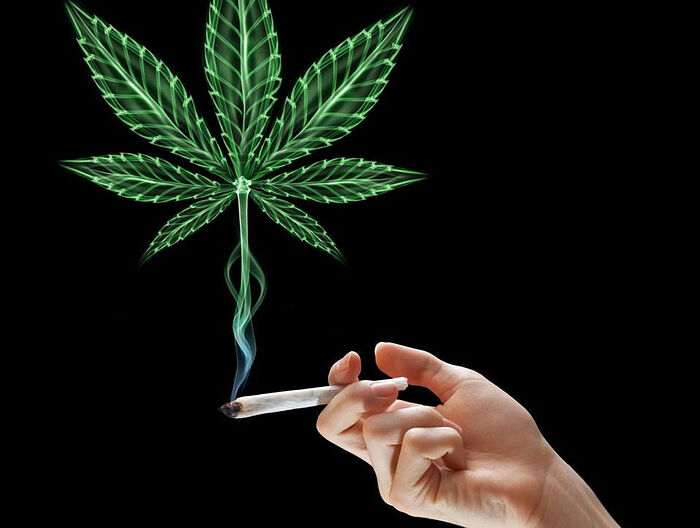The twentieth-century Serbian Elder Thaddeus of Vitovnica once offered advice to one who had thoughts of confusion—upset thoughts—after having confessed his sins and having heard the advice of his spiritual father. The Elder said that such a person is waging a war in his mind against his spiritual father, and that the Lord allows great spiritual temptations to befall such a person.
Perhaps nowhere is this reaction more commonly seen in spiritual life today than in the case of those who are called on by their confessor to set aside the use of cannabis. Users are defensive of their habit, since cannabis use is obsessive, and by definition, addictive. St. Isaac the Recluse tells us that the crown of the passions is the justification of one’s sins (Prologue from Ochrid, July 3rd), and so it is often seen in the case of those who justify this addiction.
Often a comparison is made between the use of cannabis and the drinking of wine. The Church itself blesses the use of wine, and even when the over-use of wine results in drunkenness, this effect goes away. The use of cannabis is different: cannabis has a permanent effect on the brain, making the user dumber (both academically and socially), and undermining the attention span. For the Christian, this also means undermining the capacity to pray—a habit which is tenuous in most modern people already.
If one is serious about making progress in life, especially progress in prayer and progress in holiness, how would one hope to accomplish any of this while using cannabis?
It is tragic to see the number of those suffering from depression who also use cannabis, since cannabis is an active chemical depressant. Absurd indeed is the individual who both uses cannabis and takes antidepressant medications—one drug to go up, and another to go down. This never-ending pharmaceutical roller-coaster calls for the intervention of both a physician and a spiritual father, but more than this, the individual must resolve to heed strict and mature advice to resolve their addiction, on the path to recovery.
If one is serious about making progress in life, especially progress in prayer and progress in holiness, how would one hope to accomplish any of this while using cannabis? Further, cannabis is the only gateway for drug abuse and addiction: ask any drug addict. While not all cannabis users become users of “hard” drugs such as cocaine or heroin, every user of cocaine or heroin found their way to harder drugs through the more “mild” effects and addictive habits formed by the use of cannabis.
Often, a spiritual child will tell their priest of their “need” to use cannabis for various medical or emotional maladies. The “need” they describe is by definition an addiction, the same as alcohol or opioids, but this also has a spiritual component. Like other addictions, cannabis can become a substitute for dealing with the pain of sin and repentance in the Christian life, leaving a stubborn user perpetually spiritually immature, isolated from God, and usually angry with everyone. If the cannabis has been used to address some physical problem, such as pain, the cannabis user is also caught short, since there are countless more effective methods of medical pain management which are not addictive, and which are more effective, and with no side effects. The popularity of cannabis in popular culture—especially as a “natural” pain relief—has overshadowed these alternatives, adding to the masses of cannabis addicts.
Many of the Church Fathers speak of fantasy as the opponent of the spiritual life. Unlike drunkenness (which is not an inevitable consequence of the use of alcohol), fantasy is part and parcel of cannabis use, and diametrically opposed to the sober-mindedness called for by the Church Fathers, who warn us of the need to guard the senses at all times. Without this spiritual attentiveness, each person is spiritually and psychologically vulnerable. Such vulnerabilities become manifest in cannabis use in conditions such as schizophrenia and depression. In his book, After the Fall, Saint John Cassian writes that God obscured the noetic eyes of mankind so we would not be able to see the spiritual realm, since it would be too frightening: It would be a mistake to try by medicine or sorcery to try to pierce this veil. Yet this piercing—this effort to see that which is too much for the fallen human psyche to bear—is precisely the place into which cannabis experimentation enters. Why would any spiritually serious Orthodox Christian be surprised to find cannabis use brings with it spiritual injury, the destruction of prayer life, and the destruction of the sobriety of the mind needed to maintain even a nominal Christian life in the midst of the world? Cannabis use does this in a way that tobacco or alcohol use never does.
In light of the liberalization of attitudes toward cannabis in modern Western society, even some Orthodox priests have forgotten the experience of the Church Fathers when it comes to the way in which cannabis impacts the interior life of the Christian, and the reasons for guarding the heart against the interference of this drug. It would be foolish to believe an inquirer into the Orthodox faith could successfully make spiritual progress while immersed in a cannabis addiction which undermines prayer, intensifies fantasy, and introduces spiritual confusion into the mind of the spiritual novice. Whether a catechumen or a baptized Orthodox Christian, the Christ-seeking person who struggles with cannabis use should submit to the experience of the Church, if he or she ever hopes to grow in the likeness of Christ, and move out of spiritual immaturity and paralysis.





